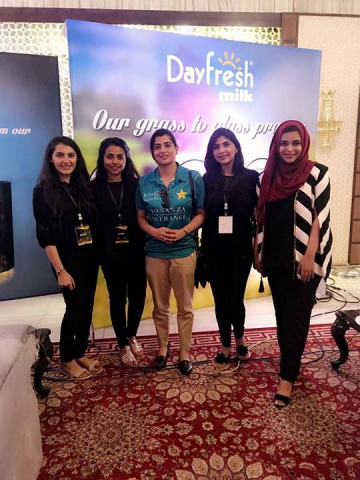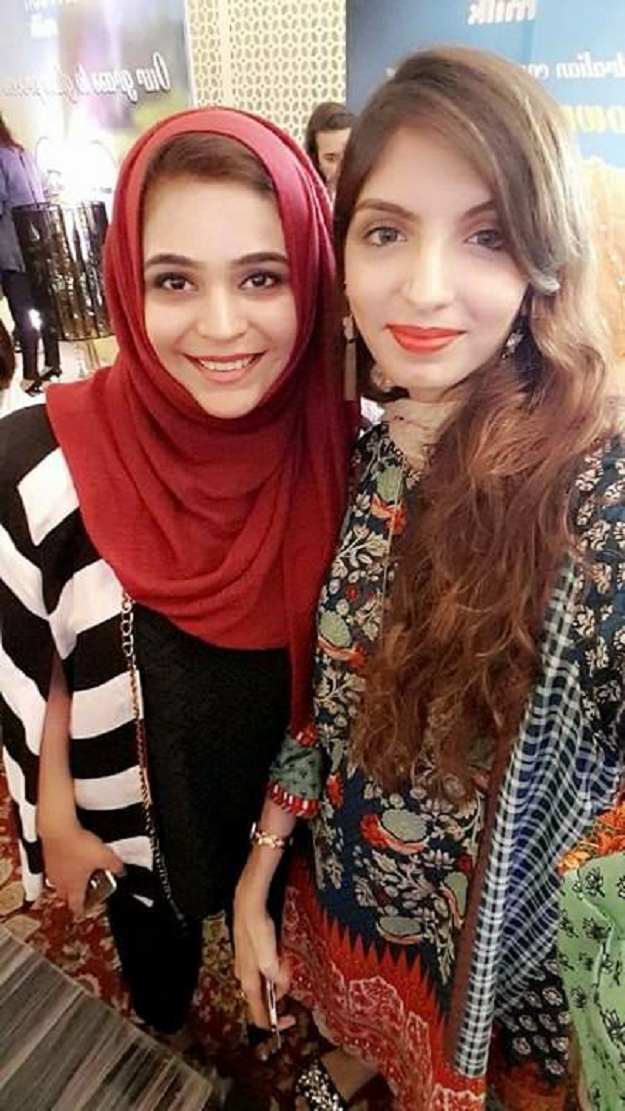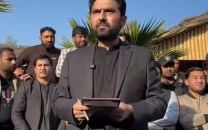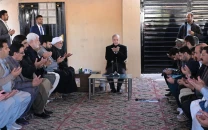Closed Facebook group allows Pakistan's online 'soul sisters' to bond, mingle off screen
With over 34,000 members, 'Soul Sisters Pakistan' had its largest meetup

PHOTO: KANWAL AHMED
A closed group on Facebook is one such platform. "Soul Sisters Pakistan" has allowed women, holding different ideologies but living similar lives, to bond digitally over a dash of anonymous posts.
With more than 34,000 members, the group had its third and largest meetup last weekend with over 500 women rushing to buy tickets.
Unlike previous meetups, this one was organised and disciplined without tussles over goodie bags or food. It allowed entrepreneurs to network, a chance for women to mingle off the screen. With the event having been sponsored by brands, product placement was done through goodie-bags and photo-booths.
Sex and Facebook posts: Women in Pakistan find safe space in secret group
The event had lined up some inspirational speakers including the captain of Pakistan women's cricket team Sana Mir, celebrity dietitian Fatima Zahra, yogi Amafah Muneezah Mubashir and psychologist Dr Leena Askari followed by a mini-concert by Natasha Baig.
Speaking to The Express Tribune, Sana Mir talked about society's acceptance of sports as a career choice for women. "I would say we have definitely made a lot of progress as a society to accept women in sports," said Sana. "Apart from our parents, siblings and family, many of my team mates have found great support from their husbands to continue in the field of sports."
She highlighted the poor organisational structure that held women back. "As far as grass root sports structure, facilities and sponsorship are concerned we have a long way to go."
Thank you Karachi for all the love. Can't get enough of this city ❤️#bonanza.satrangi #realwomenrealtalk pic.twitter.com/J4fJb08pTz
— Sana Mir ثناء میر (@mir_sana05) September 16, 2017
The edge this event had over others was its inherent inclusiveness - we saw women from different walks of life come together under one roof to have a good time. At a public concert, men more often than women, and young adults more often than adults are seen standing by the stage, enjoying the thrill of being right by the singer. At the Soul Sisters Pakistan meetup, there was no such barrier - women stood together, without any qualms about age or gender and were free to enjoy the music as they pleased.
The platform allowed for women in their 20s to their 40s and late 50s to come together, clad in western outfits and in hijabs, with only one thing in common - the security to allow themselves to forget about societal norms for a little while, to ensure that they didn't come in the way of having fun.
The talks, according to some SSP meet up reviews, seemed to have dragged on, 'boring' the crowd. Few complained about food being not up to mark while some were not so happy with the give-away. Some skipped the event, finding ticket price too steep.
Kanwal Ahmed, the brains behind the Soul Sisters Pakistan, has managed to help the closely-monitored group evolve into a social media organisation.
Often criticised for revolving around and promoting patriarchy, the group's anonymous posts mostly delve on saas-bahu or marital problems. Where it gives a platform for women to seek advice, the comments that follow sometimes tend to lean towards extremes. Kanwal, however, stresses that "women should be able to sift through the variety of advice offered and pick what works for them".
"At the end of the day advice offered on the group is not and cannot be substituted for professional counseling or diagnosis so discussion threads here shouldn't be mistaken for that," she adds.
 PHOTO: KANWAL AHMED
PHOTO: KANWAL AHMEDBut when has a disclaimer helped shape people's behaviour?
Many studies suggest that social media, overtime, can have an adverse influence on a person's sense of self, especially when they seek validation from strangers. "I think it's important to get a third person's perspective," argues Kanwal. "Our family and friends often give us biased opinions and advice on our situations. They may or may not sympathise more with us due to the relationship we have with them.
"With a stranger, at least you know they're free of any biases because they don't know you personally and their opinion is based solely on the situation you narrate."
US looks to Facebook, private groups to battle online extremism
One area in which social media seems to have given positive encouragement to people is in terms of adopting a healthy lifestyle. Fatima Zahra, another speaker at the event, spoke to The Express Tribune on how the medium has promoted the healthy vs unhealthy debate.
"Social media is a double edged sword that promotes unhealthy beauty idols alongside expert advice on health and nutrition," Fatima tells us. "It depends largely on which sites you follow."
But she does credit the medium for creating awareness about body image and encourages dialogue on body positivity. "Because of social media, users become active participants in the fight against brands that indulge in body shaming when marketing their products," says Fatima. "For example, Protein World's 'Are you beach body ready?' campaign was ripped apart by social media users, forcing the British government to ban the highly offensive ad."
The group may be a schemata of a society where internalised misogyny pits women against women, it is still also one of the main platforms that can help change the narrative. Encouraging empathy and acceptance for women with diverse ideologies can be the pathway to a tolerant society. And the Soul Sisters Pakistan certainly has an audience big enough to initiate that change.



















COMMENTS
Comments are moderated and generally will be posted if they are on-topic and not abusive.
For more information, please see our Comments FAQ